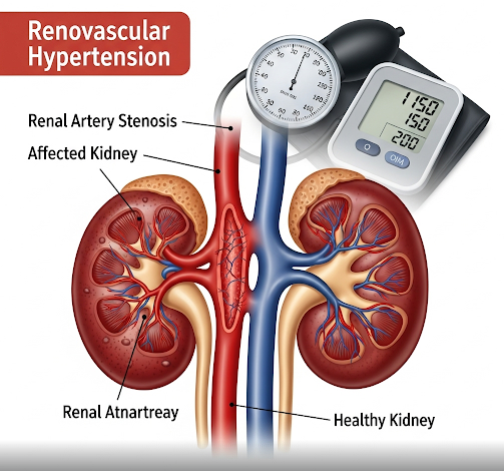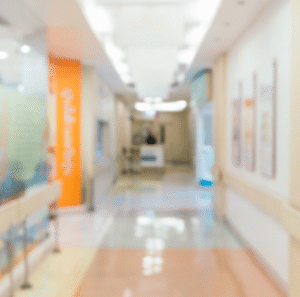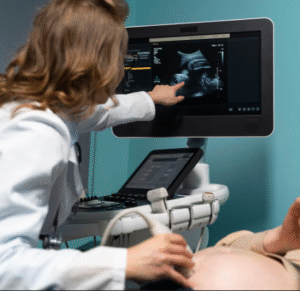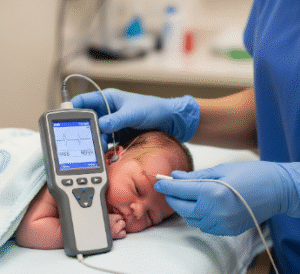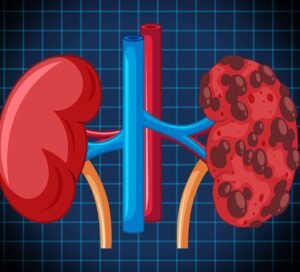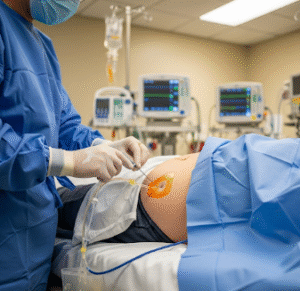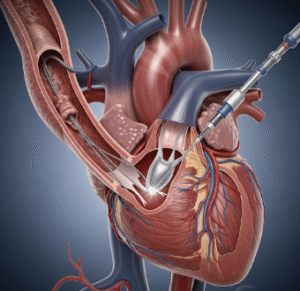Overview
Renovascular hypertension is high blood pressure caused by narrowing or blockage of the arteries supplying blood to the kidneys (renal arteries). This condition leads to reduced blood flow to the kidneys, activating hormonal systems that increase blood pressure. Korea offers advanced diagnostic tools and effective treatment options to manage renovascular hypertension and prevent complications.
What is Renovascular Hypertension?
Renovascular hypertension results from stenosis (narrowing) or occlusion of one or both renal arteries. The kidneys perceive reduced blood flow as low systemic pressure, triggering the renin-angiotensin-aldosterone system (RAAS) and causing vasoconstriction and fluid retention, which elevate blood pressure.
Symptoms
- High blood pressure difficult to control with medications
- Sudden onset or worsening of hypertension
- Abdominal or flank bruits (abnormal artery sounds)
- Reduced kidney function in severe cases
- Possible signs of organ damage from high blood pressure
Causes
- Atherosclerosis causing plaque buildup in renal arteries (most common)
- Fibromuscular dysplasia causing arterial narrowing, especially in younger patients
- Rarely, vasculitis or arterial dissection
Risk Factors
- Older age
- Smoking
- High cholesterol and atherosclerosis
- Diabetes mellitus
- Hypertension family history
- Female gender (fibromuscular dysplasia)
Complications
- Persistent uncontrolled hypertension
- Chronic kidney disease due to ischemic injury
- Heart failure and stroke from uncontrolled blood pressure
- Progressive renal artery damage
Prevention
- Control of risk factors like cholesterol, diabetes, and smoking
- Regular blood pressure monitoring
- Early detection in patients with resistant hypertension
Treatment Options in Korea
Diagnosis
- Doppler ultrasound of renal arteries
- CT angiography and MR angiography for detailed imaging
- Renal arteriography for diagnosis and possible intervention
Medical Treatments
- Antihypertensive medications including ACE inhibitors, ARBs, calcium channel blockers, and diuretics
- Statins and antiplatelet agents for atherosclerosis management
- Lifestyle modification and risk factor control
Interventional & Surgical Treatments
- Percutaneous transluminal renal angioplasty (PTRA) with or without stenting to open narrowed arteries
- Surgical revascularization or bypass in selected cases
- Minimally invasive endovascular procedures with shorter recovery times
Advanced Therapies
- Use of drug-eluting stents and advanced catheterization techniques
- Intravascular imaging tools such as IVUS for precise diagnosis and treatment
Rehabilitation and Support
- Ongoing blood pressure and kidney function monitoring
- Lifestyle counseling for cardiovascular risk reduction
- Medication adherence support and patient education
Top Hospitals or Clinics in Korea for Renovascular Hypertension
- Seoul National University Hospital – Experts in vascular intervention and nephrology
- Asan Medical Center – Advanced endovascular treatments and kidney care
- Samsung Medical Center – State-of-the-art interventional radiology services
- Yonsei Severance Hospital – Comprehensive vascular and renal specialty care
- Korea University Anam Hospital – Skilled in minimally invasive procedures and management

